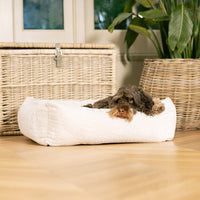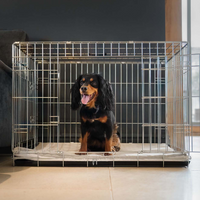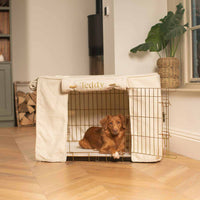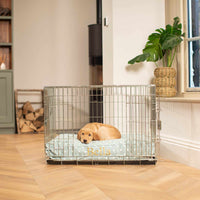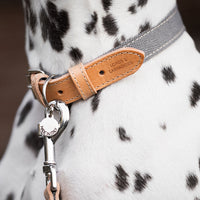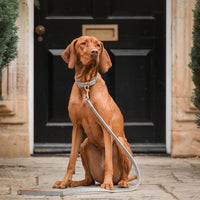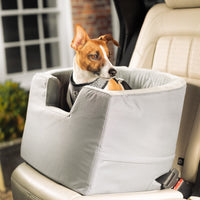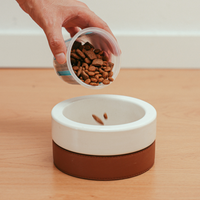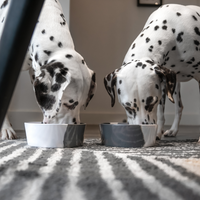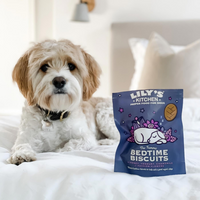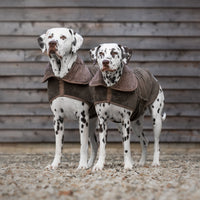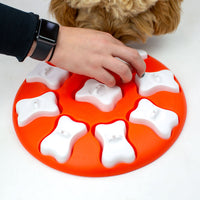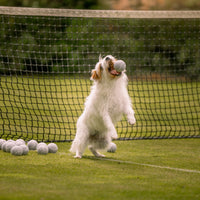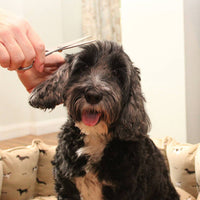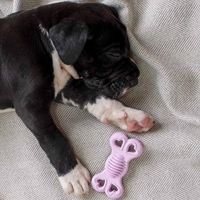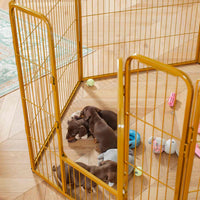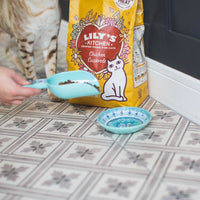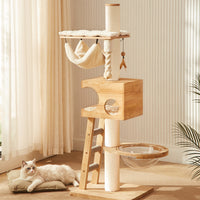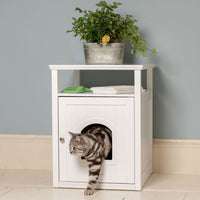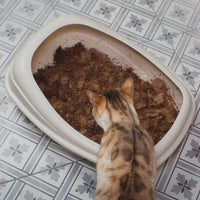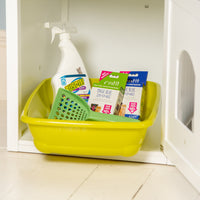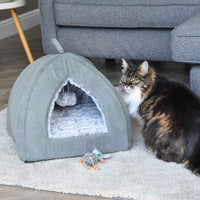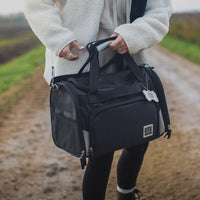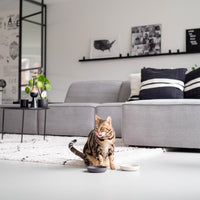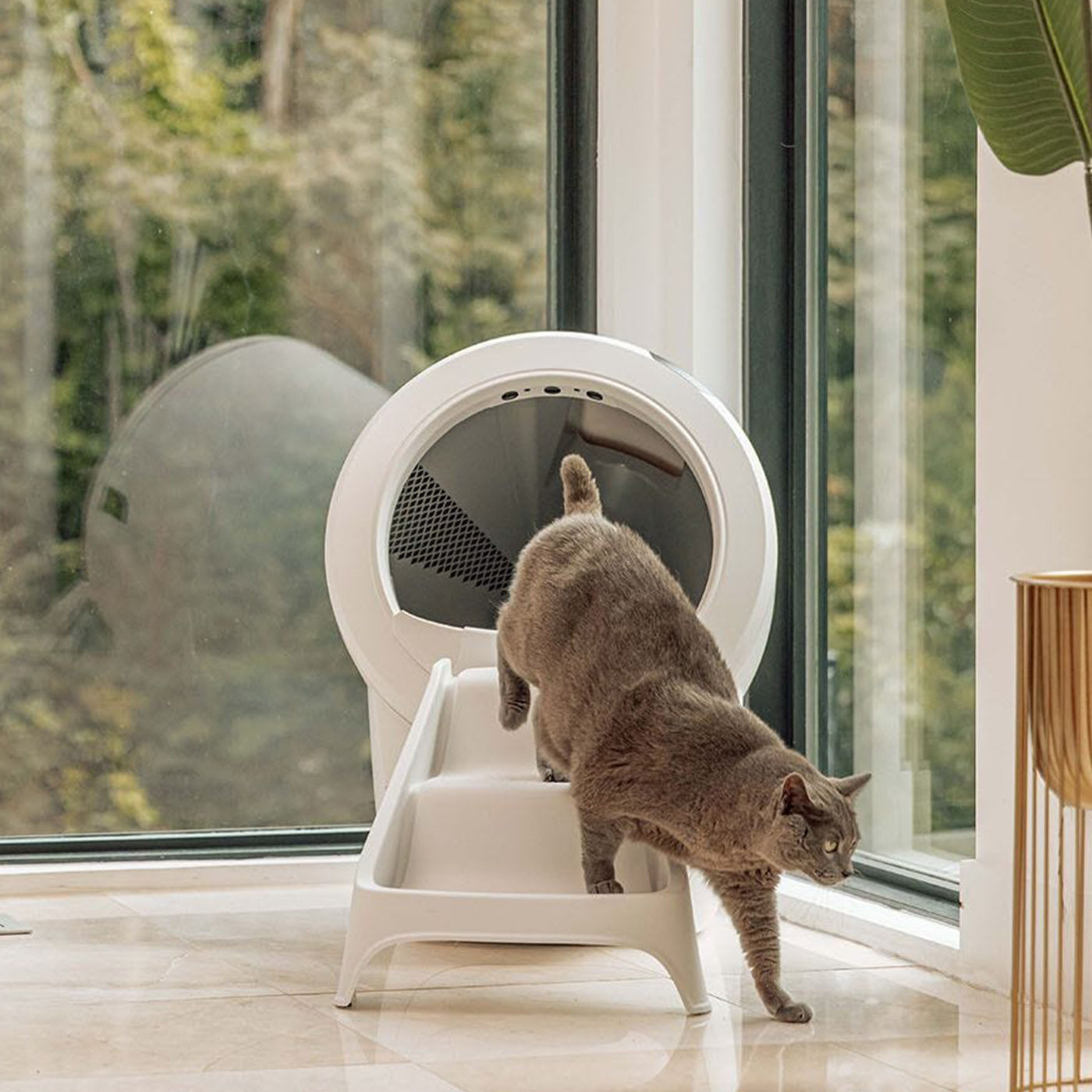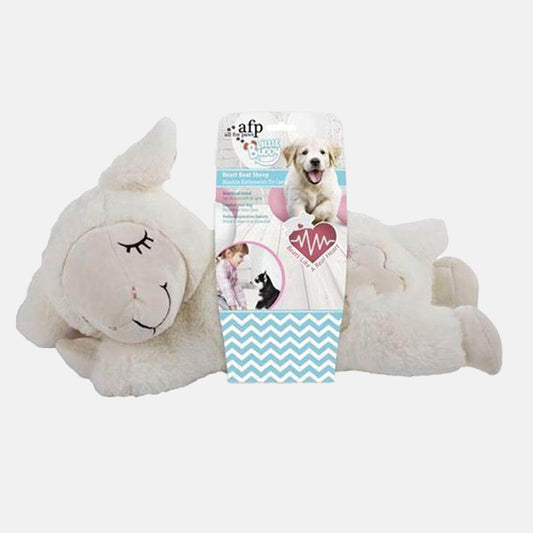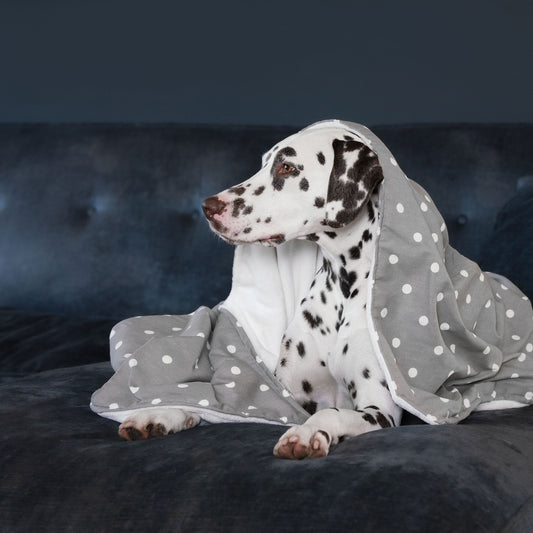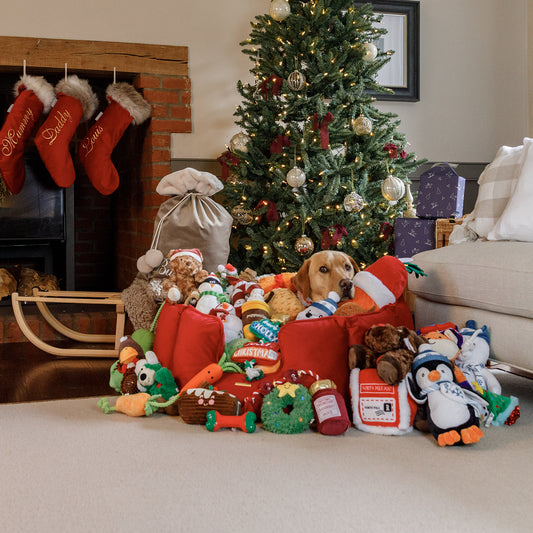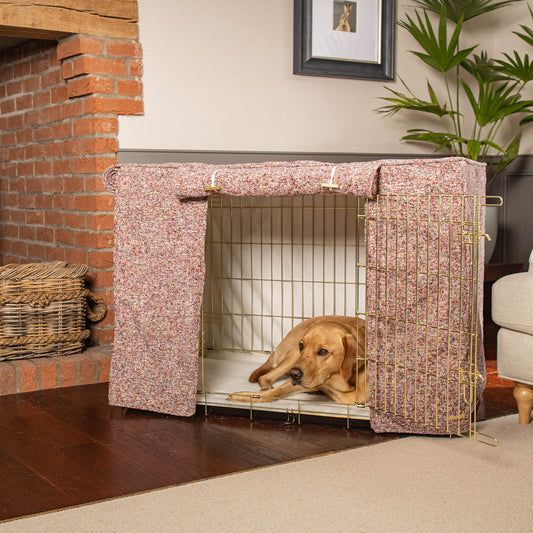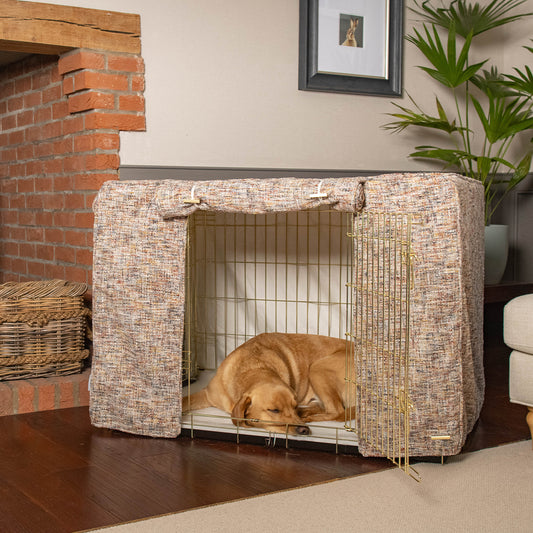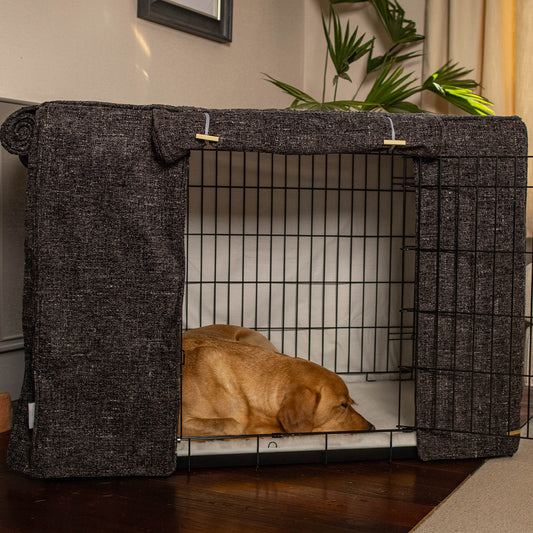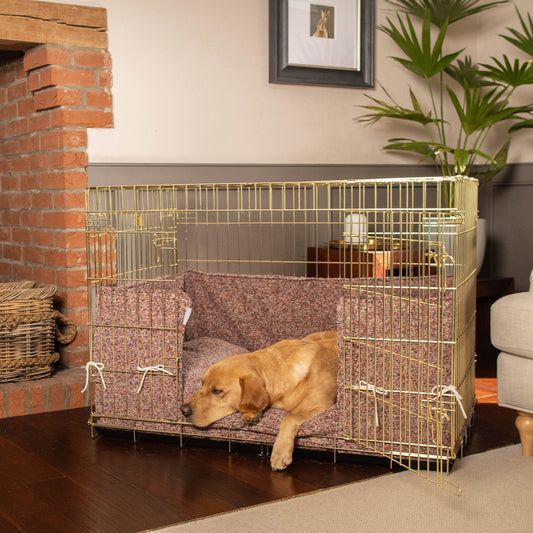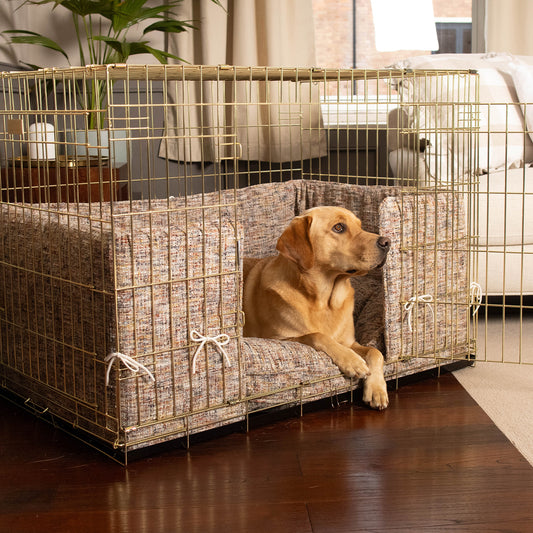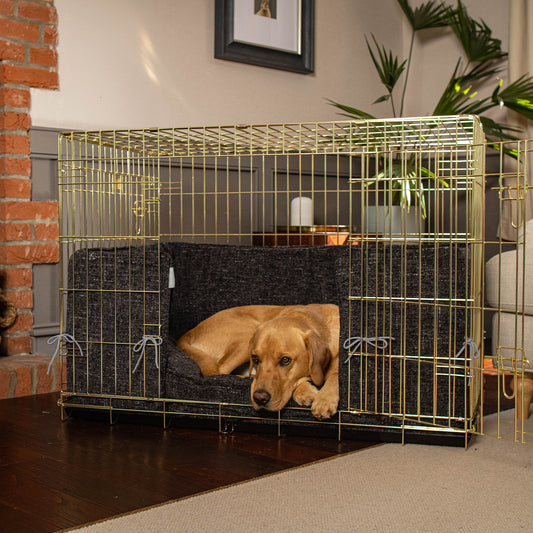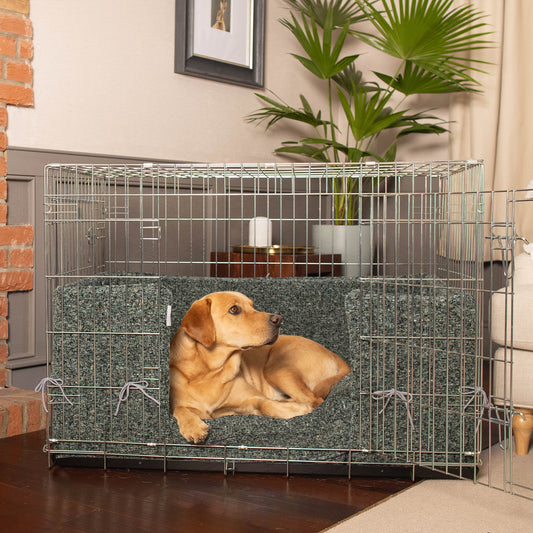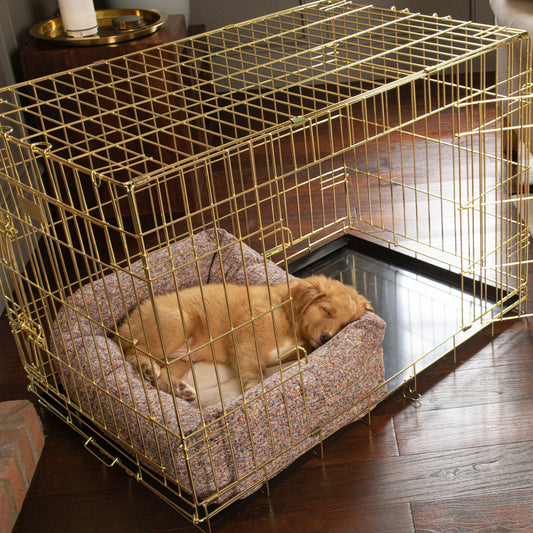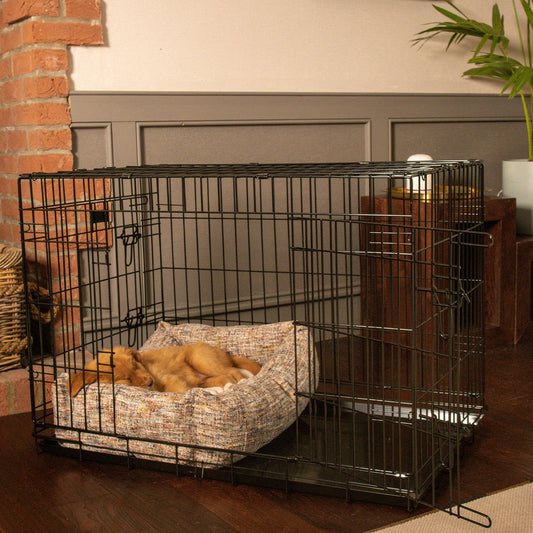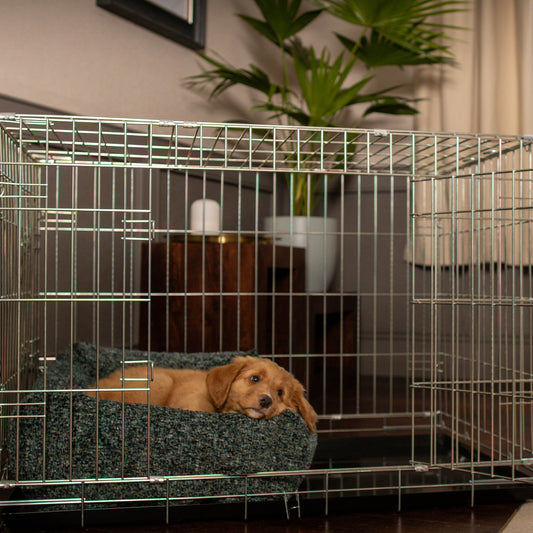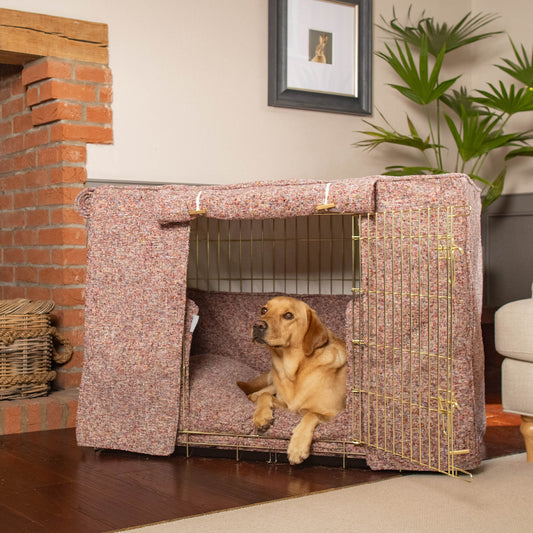We all know how important sleep is for our overall health and wellbeing - and it’s no different for your dog either. The truth is, your pup needs their fair share of slumber to keep their tails wagging, but exactly how much shuteye do they need, and what can you do to ensure they’re getting enough of it?
Our recent “Be a Doggy-Do-Little” campaign looks into the ways that we can help our precious pooches snooze soundly, but it’s vital that you appreciate what their sleep needs are. Keep reading to find out more about a typical dog’s sleep schedule, as well as some all-important bedtime tips and tricks.
Understanding your dog’s sleep needs
First and foremost, it’s important to understand your dog’s sleep needs, as well as recognising the fact that they need this rest in order to stay feeling happy and healthy.
Generally speaking, adult dogs need approximately 12 to 15 hours of shuteye per day, with this being split up into daytime naps followed by a longer stretch of sleep at night. Puppies, although bursting with energy, may require as much as 18 hours of sleep per day, and while they may struggle to sleep through the entire night at first, it’s nothing a little training can’t fix.
It’s actually very normal for your pooch to spend about 50% of their day snoozing and 30% “resting”, meaning they are “active” for 20% of the day - but why does your dog sleep so much? For the most part, your pup will choose to take a nap when there simply isn’t anything better to do, and it could even be that your four-legged friend just really loves to lounge.
It’s also important to note that larger breeds need to work harder in order to move around, meaning that they require time to rest, while smaller, younger and more agile pups tend to race about, burning up energy before crashing into a deep sleep until their bodies have recovered. When your dog needs to sleep, they will sleep, and it’s crucial that as their owner, you allow them to get the much-needed slumber they deserve.
How to help your pup snooze soundly
As part of our “Be a Doggy-Do-Little” campaign, we’ve explored a plethora of ways in which you can help your pup snooze more soundly. Make sure you check out the full campaign for our entire range of useful and practical tips - but if you’re keen for a sneak peak in the meantime, keep reading...
Comfort comes first
Just like us, your pup needs somewhere comfortable to sleep in order to get the rest they need. If your pooch snoozes in a traditional style dog bed, make sure it’s big enough for their breed and size, as well as super cosy and cushioned. If your pet sleeps in a crate, you can make the inside snug with a bumper and a soft padded bed, and even include a drop-down cover on the outside for extra privacy. Ideally, their sleep space should be quiet, draught-free and warm, giving them the privacy they need to unwind and recharge.
Routine is everything
Creating a simple but effective bedtime routine for your furry friend can work wonders in helping them get ready for a night of sleep. This routine can include timing their evening meal just right so that they are able to snooze on a full tummy, or adjusting this mealtime for puppies who may need longer to digest their dinner ahead of bedtime. It’s also a good idea to keep the vibe in your home calm and quiet in the hours before lights-out so that your pooch can get ready to drift off.
Good habits go a long way
When it comes to your pup’s sleep schedule, adopting good bedtime habits can go a long way. For example, it’s worth fitting in a quick bathroom break before your pooch settles down for the night so they can relieve themselves, reducing the chances of them waking in the night. It’s also a good idea to avoid slipping into the habit of letting your furry friend share your bed. While it might be tempting to snuggle up, allowing your pup to sleep next to you can have a negative effect on the quality of sleep for you both, so it’s best that you stick to your separate sleeping quarters.
Better sleep, better health
Like us, dogs need adequate sleep in order to stay feeling happy and healthy. Taking a snooze allows your pup to rest and recharge so they can wake up ready to take on the day ahead. For puppies, getting enough slumber is crucial for development and growth, while older dogs need their sleep to let their bodies recover from the day’s activities
If your pooch is struggling to get the sleep they need, there are a number of small changes you can make to their diet that could help them drift off. For instance, it could be that your pup’s current diet is too energy-rich, meaning that they are not able to switch off properly. It’s thought that certain additives, proteins and other nutritional components have a lot to answer for when it comes to sleep and overall behaviour.
With this in mind, it’s a good idea to do your research to figure out what type of food your canine pal should be eating based on their breed and age to help them sleep soundly. You could even offer your pup specially designed bedtime biscuit treats containing ingredients that can aid a blissful bedtime, such as honey, yoghurt and camomile.
You might also want to consider offering your pup a natural sleep supplement, such as melatonin. However, it’s best to speak to your vet first to ensure you’re using the most safe and effective type of supplement for your four-legged friend.
How do you make sure your pooch sleeps well every night? Share your tips and tricks using the hashtag #SleepForDogs.


